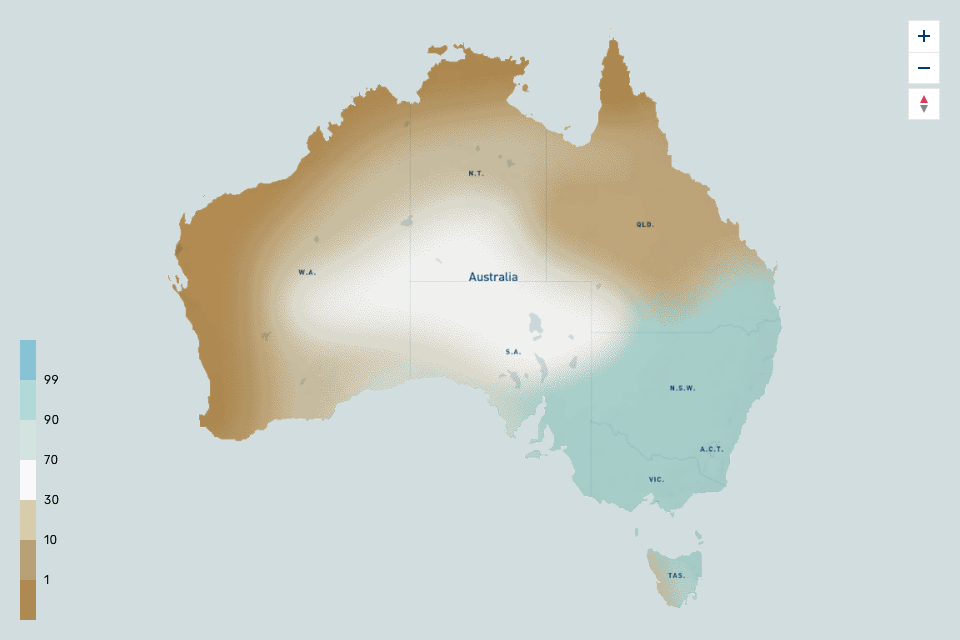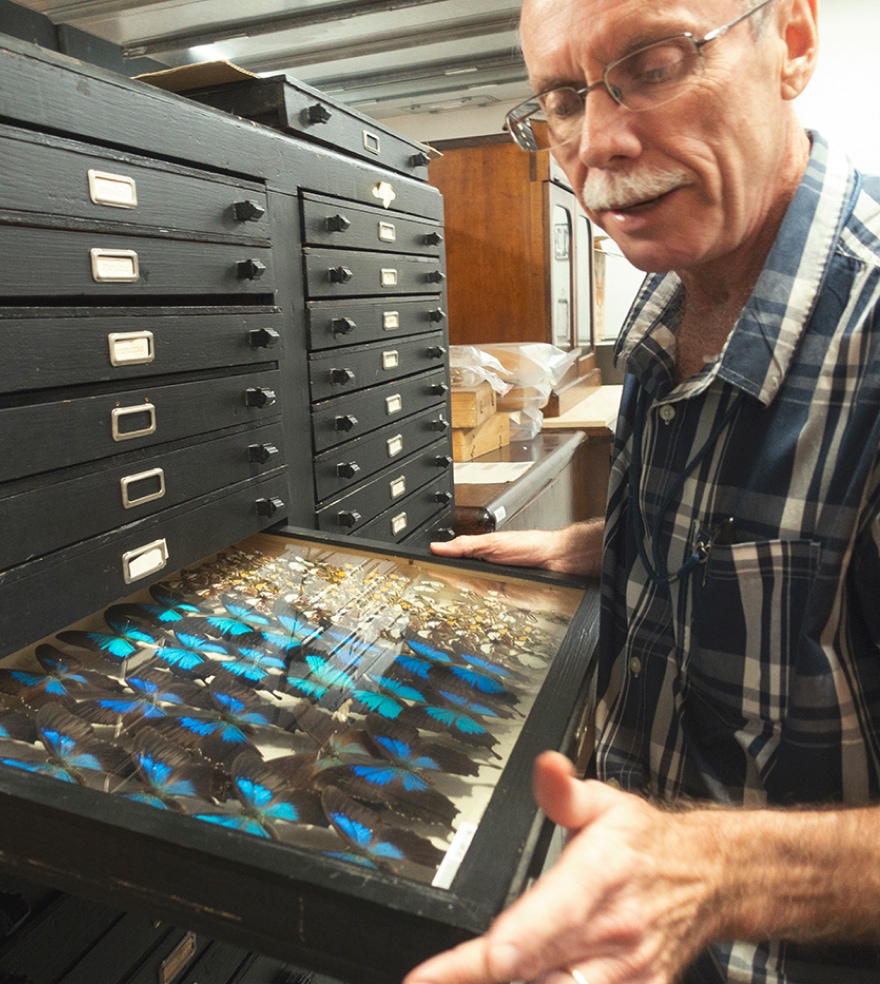Menzies Foundation
Supporting science startups in Australia
We conducted systems research into science entrepreneurship in Australia, focusing on how to support scientists to commercialise their discoveries.
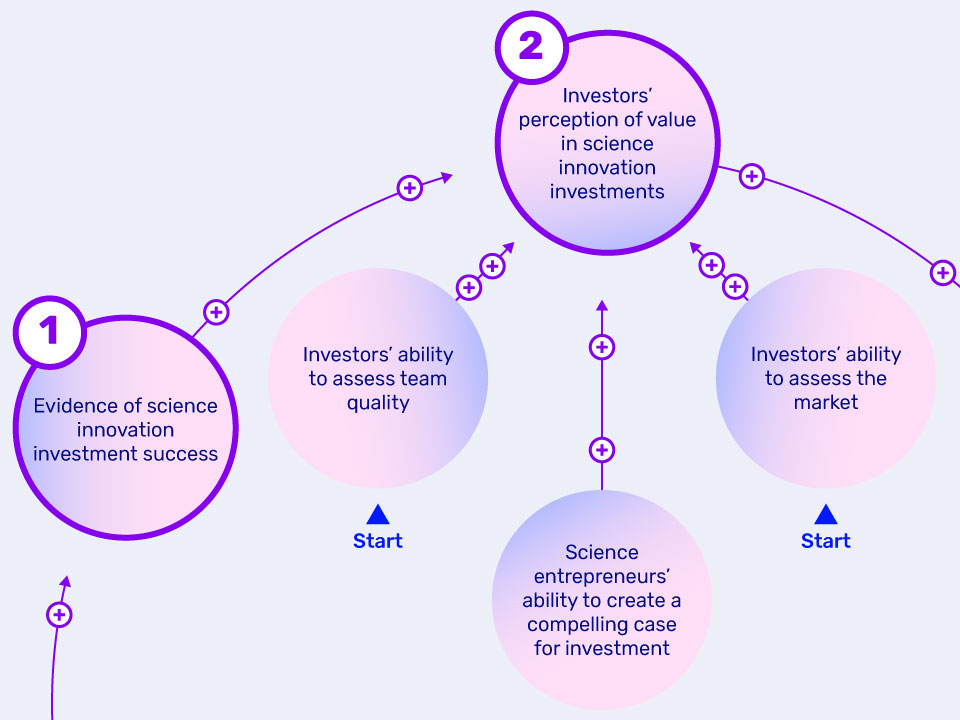
Outcomes
-
Insight into the individual and systemic barriers to successful scientist-led commercialisation in Australia
-
Archetypes and success factors to use when designing future support mechanisms
-
Clear and validated points of intervention for the Menzies Foundation’s future work in supporting the sector
Services
Sectors
Challenges to science entrepreneurship
Australia has a problem translating good science into new companies. This isn’t a new problem: systemic barriers to commercialisation – including funding, attitudes, scalability and incentives – have existed for decades.
The Menzies Foundation is a not-for-profit organisation whose key areas of focus include supporting the development of entrepreneurial scientists in order to take advantage of new opportunities from innovation in science and technology.
The foundation commissioned Paper Giant to conduct research that would serve as the basis for interventions in science entrepreneurship incubation and support. This research deepens our understanding of the barriers faced by scientist-entrepreneurs, and provides a roadmap for supporting future Australian leaders in the sector.
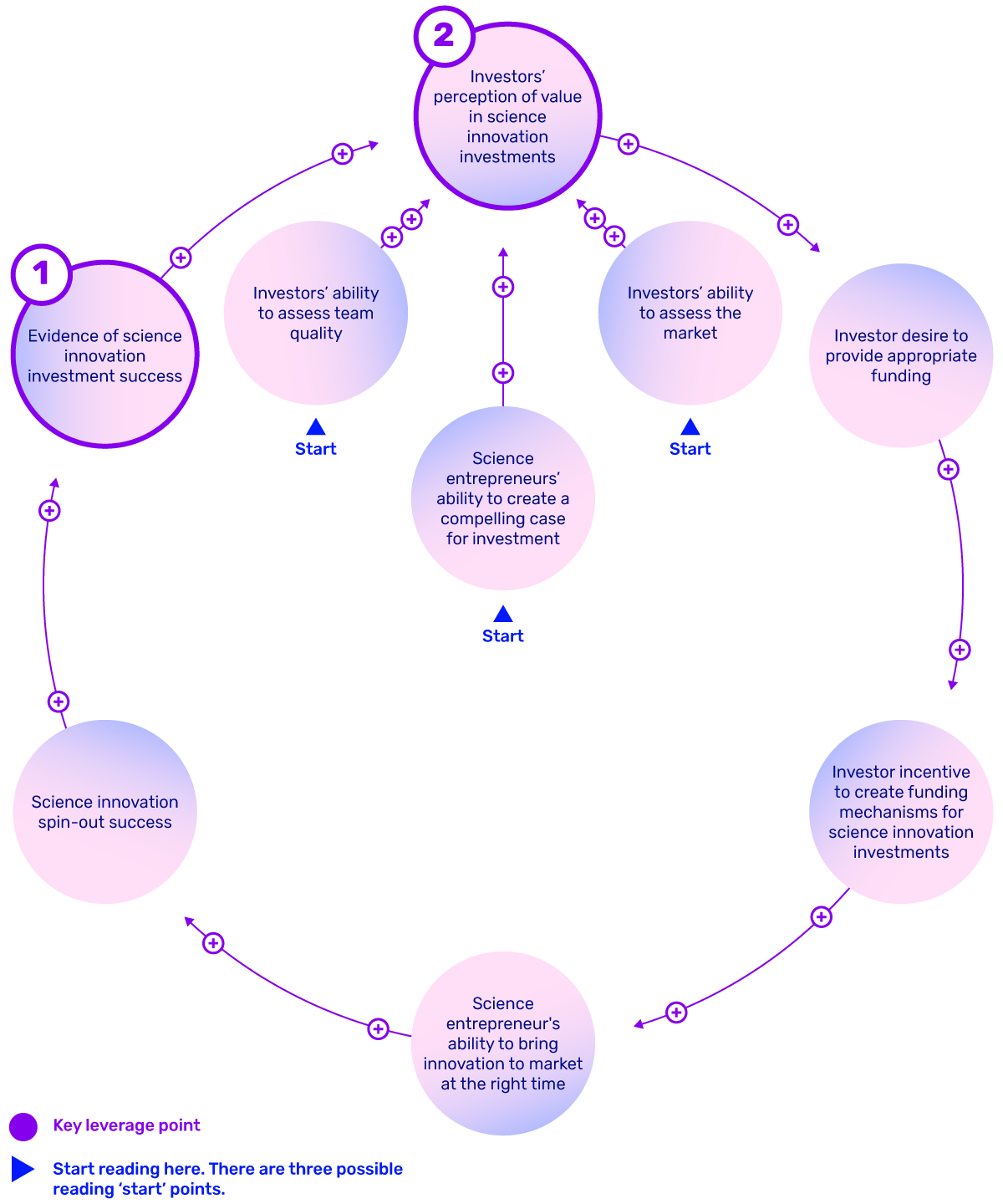
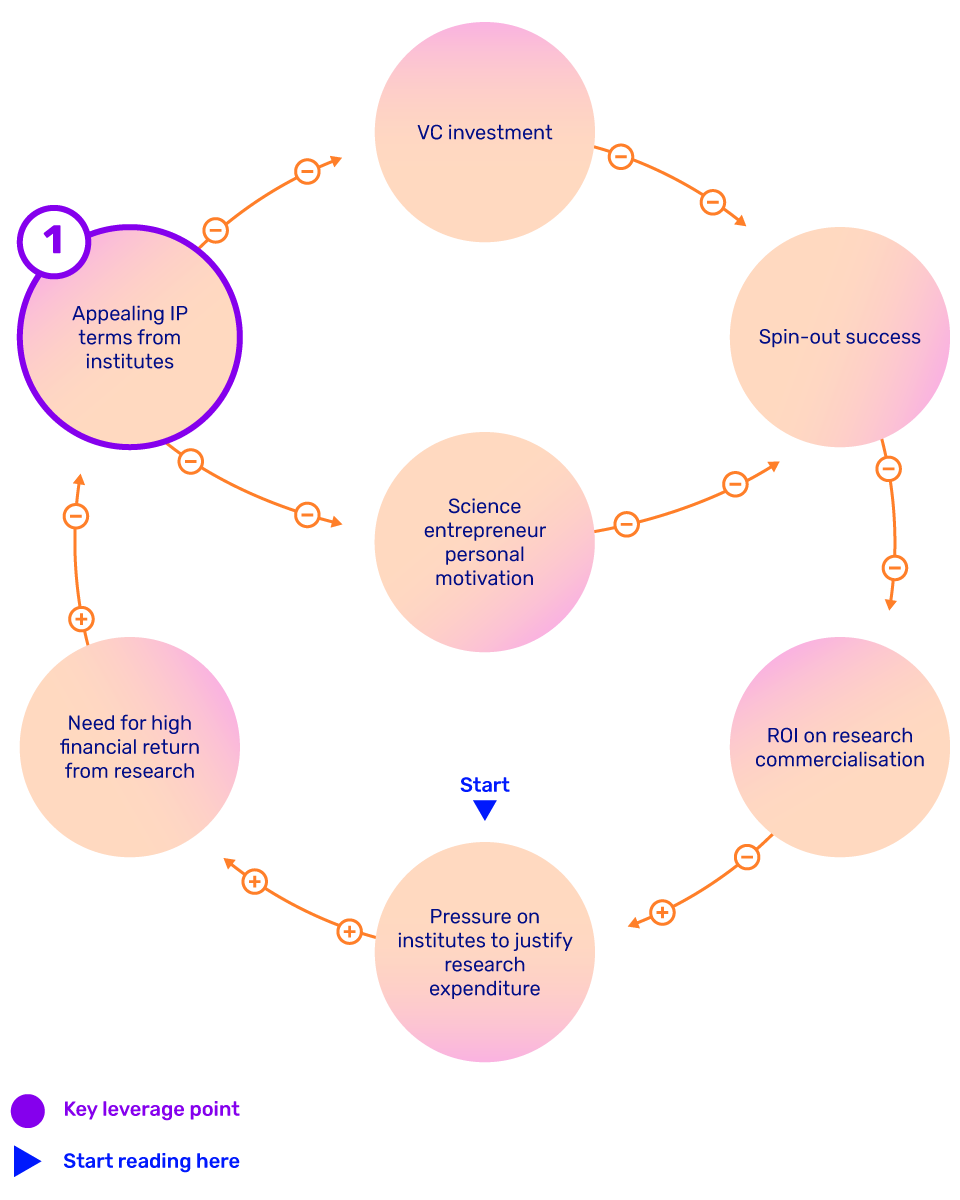
Two of the systems maps that were used to synthesise the research and identify key leverage points where Menzies could act.
Two of the systems maps that were used to synthesise the research and identify key leverage points where Menzies could act.
From discovery to ‘spinning out’
We started by conducting a comprehensive literature review of the well-documented issues in the sector. We followed this with qualitative research with science entrepreneurs in the midst of a start-up journey, as well as sector stakeholders, to understand their first-hand experiences of commercialisation (or ‘spinning out’).
We focused on understanding the typical journey and experiences of science entrepreneurs who have attempted to – successfully or unsuccessfully – launch a start-up built around a science-based innovation.
Alongside this work, we used systems practice to map and document the broader ecosystem of structures, policies, incentives and supports that science entrepreneurship is situated in.
We found that as scientists move through their ‘spinning out’ journey, from discovery through to scaling a successful business (or alternatively, failure), they face significant gaps and disconnections: inadequate and unstable funding, misalignment of values, barriers to scaling, and inefficient incentive structures. Some of these barriers are individual and can be addressed through mentorship and training, but some are systemic and require larger-scale or targeted interventions to increase the chance of successful commercialisation.
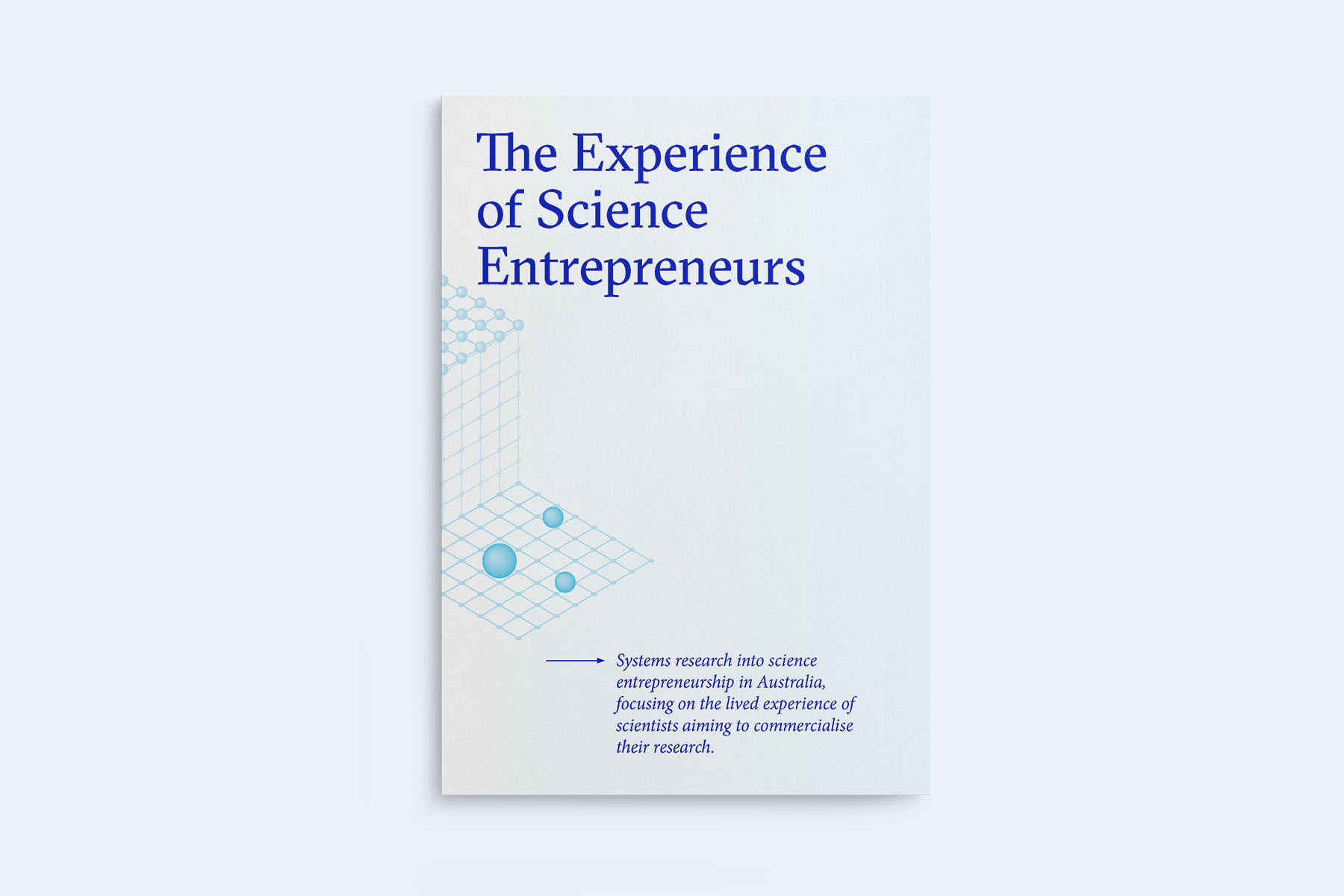
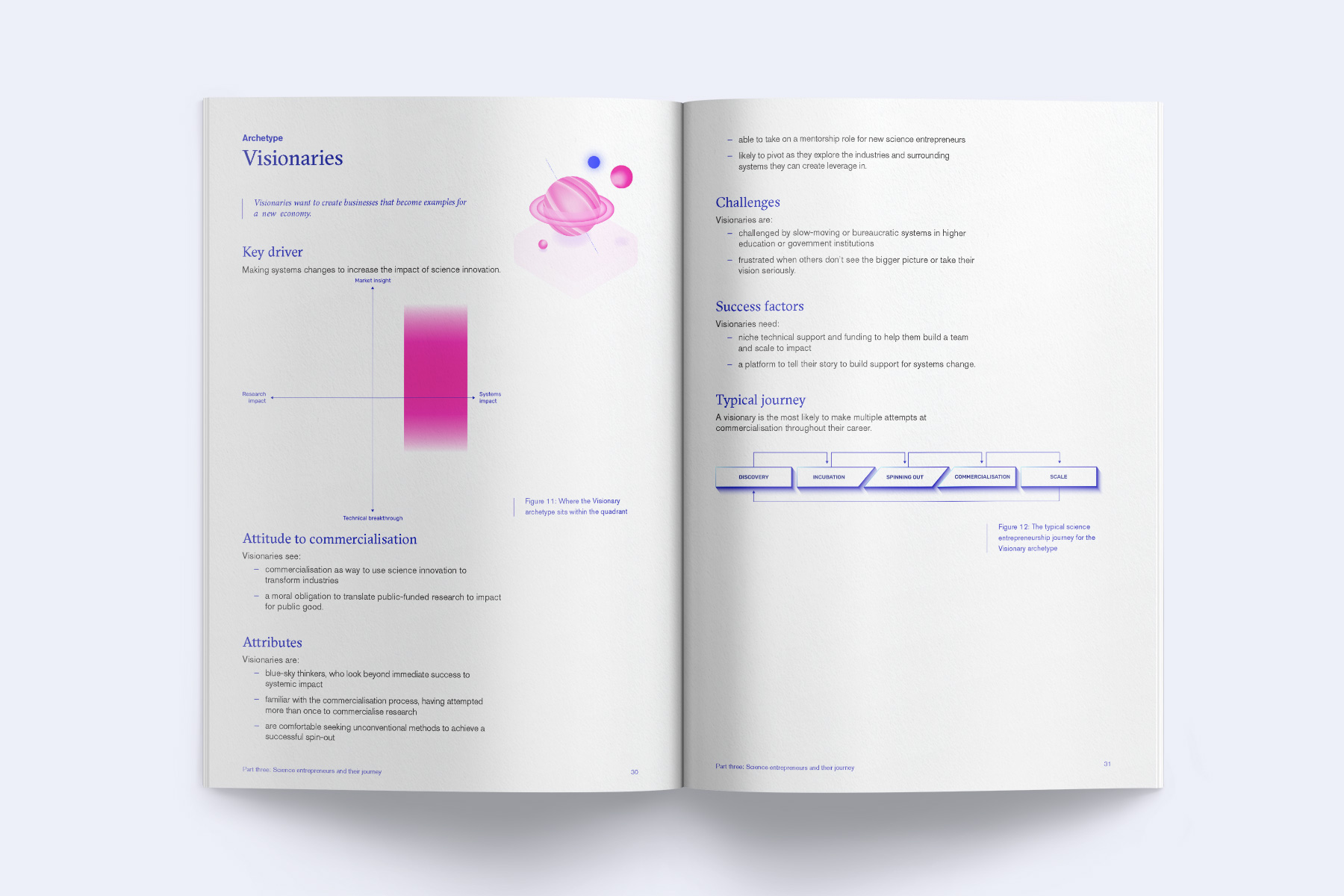
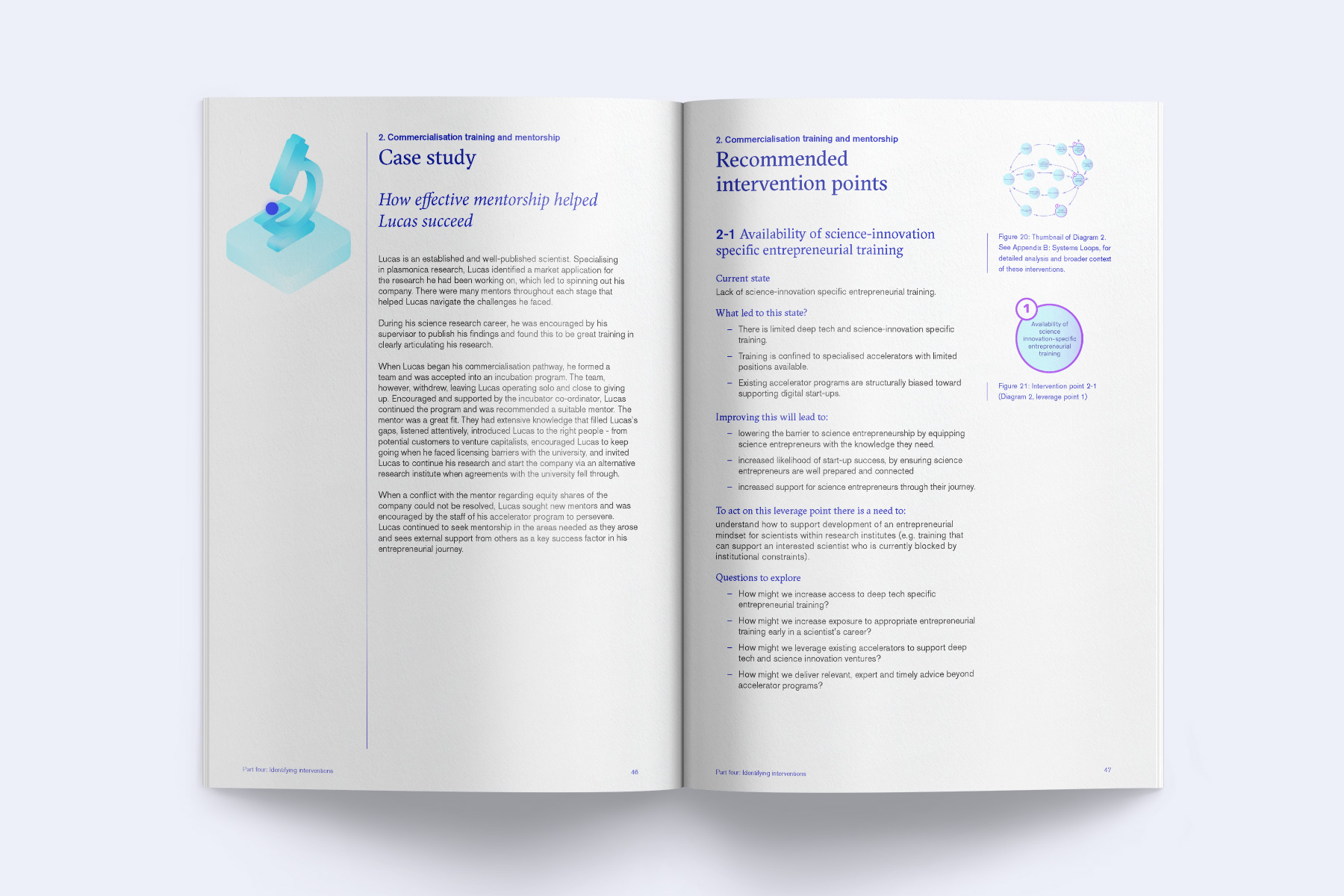
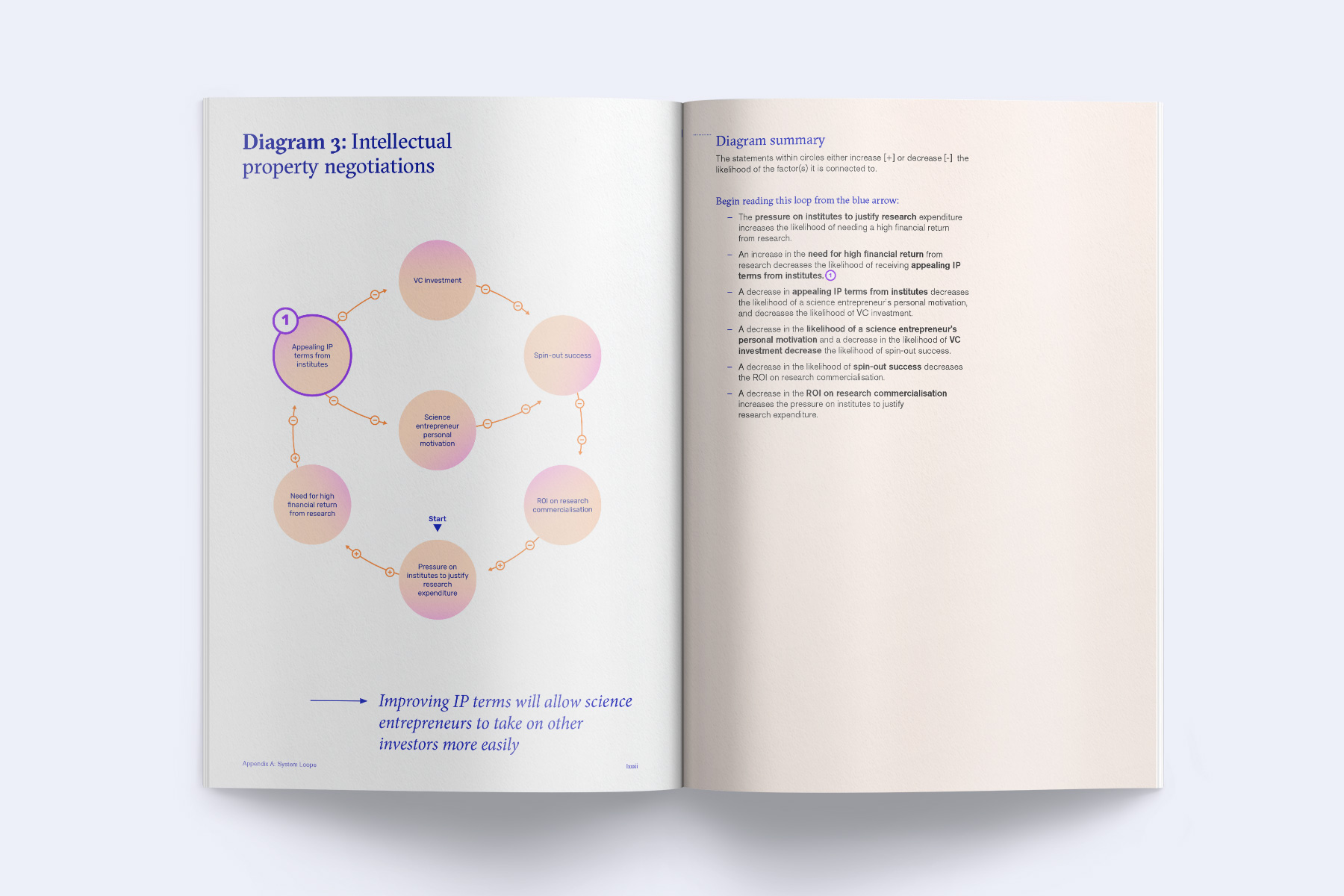
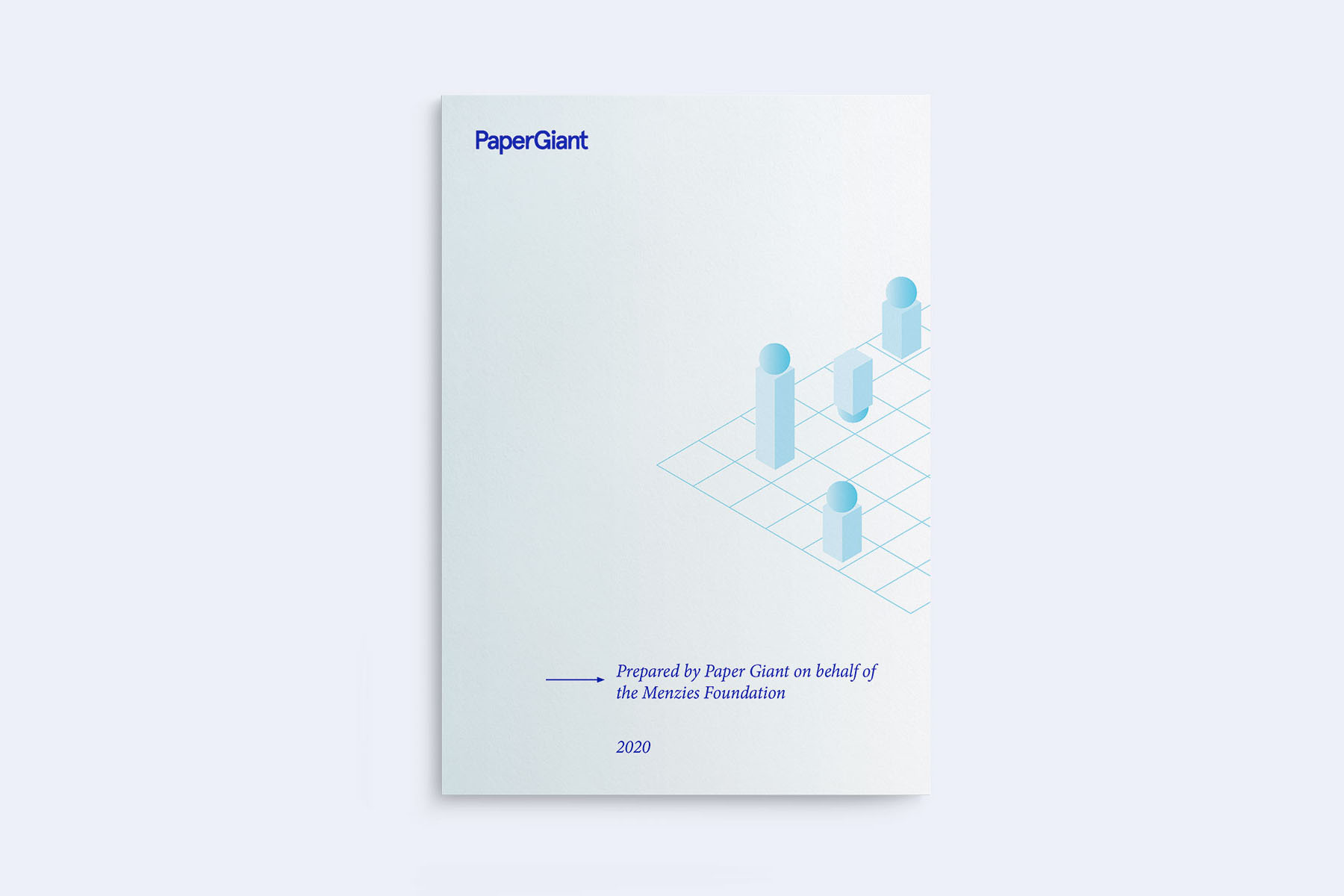
A series of spreads from the report published as part of the project.
Influencing the research commercialisation ecosystem
By combining these two streams of research, we were able to identify common entrepreneur archetypes and what each archetype needs to succeed. We also identified the challenges and opportunities within the system so that we could find the most effective points of intervention for the foundation’s future work in supporting the sector.
We found four areas of opportunity to influence the science entrepreneur pipeline and start-up outcomes:
- Encouraging more scientists to commercialise
- Providing commercialisation training and mentorship
- Improving intellectual property negotiations between science entrepreneurs and research institutions
- Influencing investor attitudes towards science innovation start-ups
By acting on these areas of opportunity, Australia can improve the translation of public sector research into economic and social benefits.
The report and its insights are publicly available – read it here.

